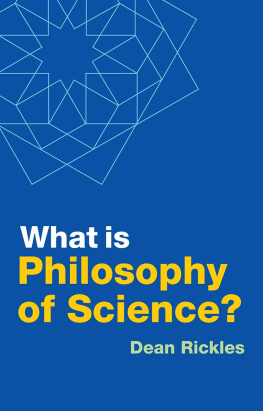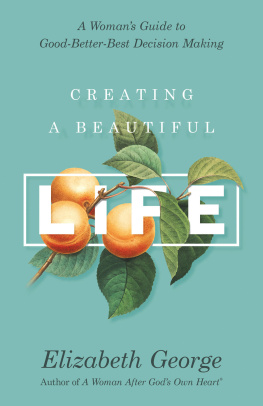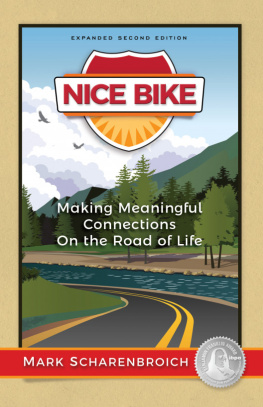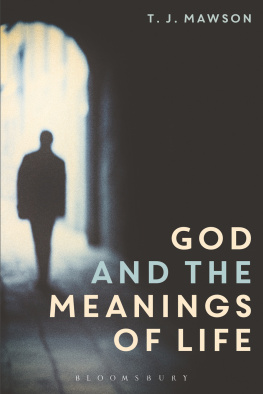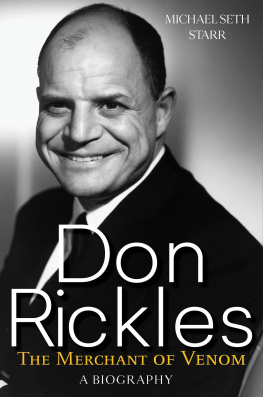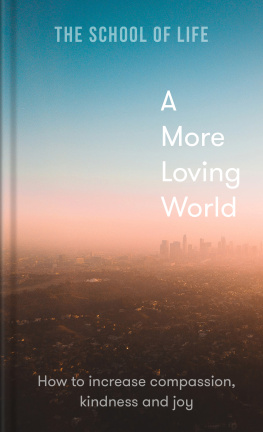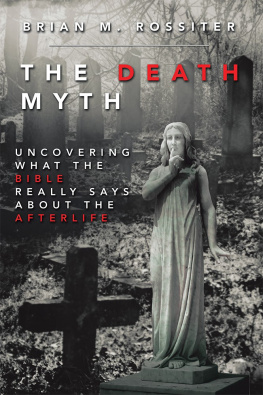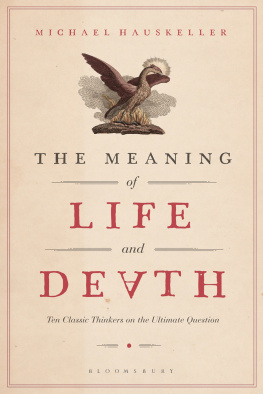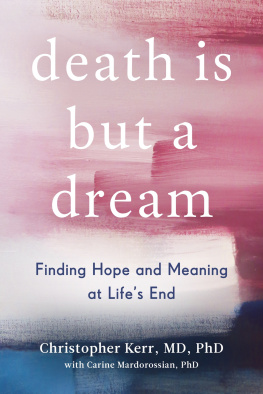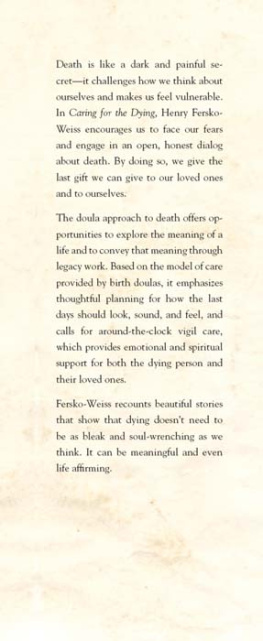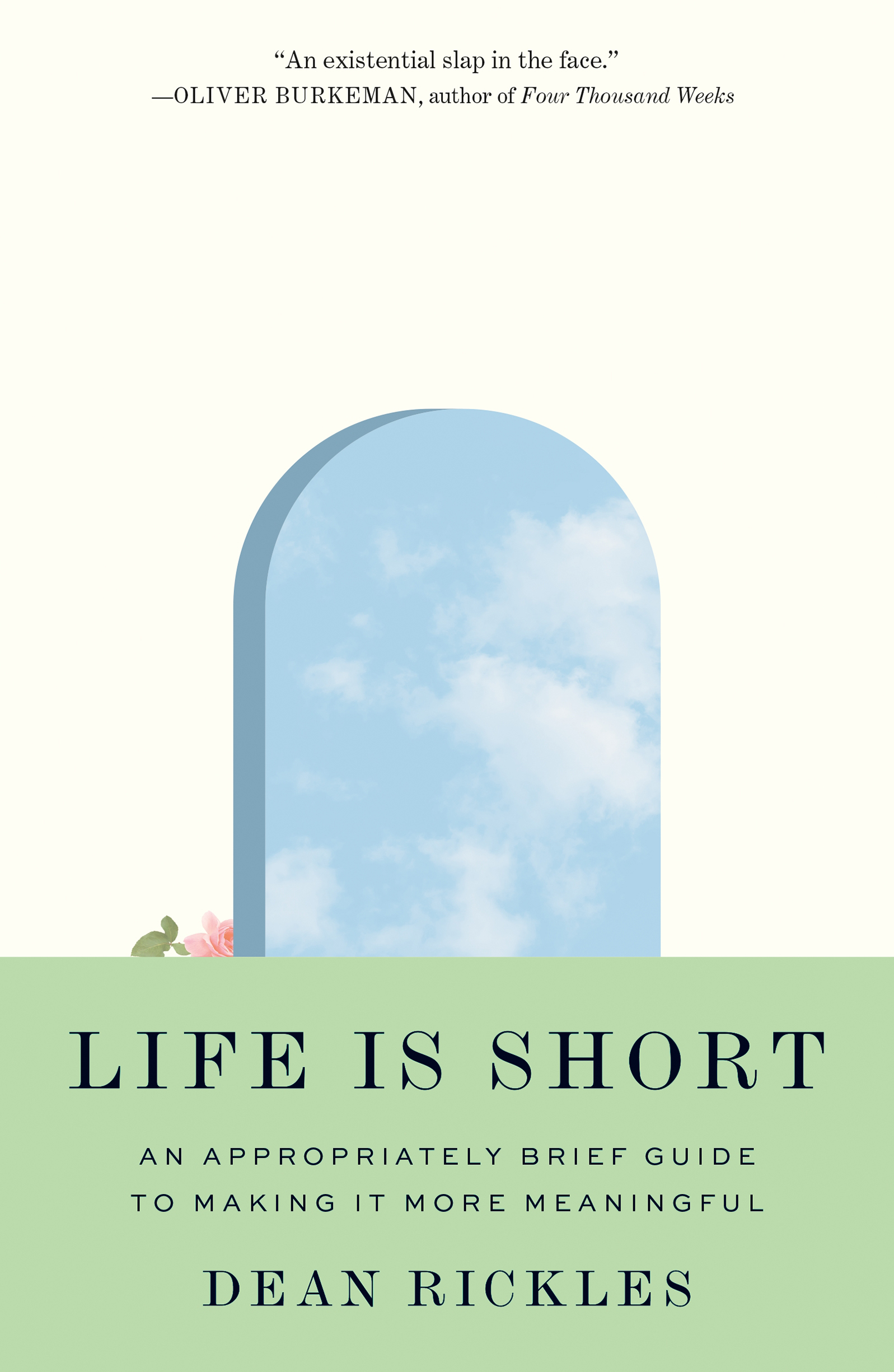LIFE IS SHORT
Life Is Short
AN APPROPRIATELY BRIEF GUIDE TO MAKING IT MORE MEANINGFUL
DEAN RICKLES
PRINCETON UNIVERSITY PRESS
PRINCETON & OXFORD
Copyright 2022 by Princeton University Press
Princeton University Press is committed to the protection of copyright and the intellectual property our authors entrust to us. Copyright promotes the progress and integrity of knowledge. Thank you for supporting free speech and the global exchange of ideas by purchasing an authorized edition of this book. If you wish to reproduce or distribute any part of it in any form, please obtain permission.
Requests for permission to reproduce material from this work should be sent to
Published by Princeton University Press
41 William Street, Princeton, New Jersey 08540
99 Banbury Road, Oxford OX2 6JX
press.princeton.edu
All Rights Reserved
Library of Congress Cataloging-in-Publication Data
Names: Rickles, Dean, author.
Title: Life is short: an appropriately brief guide to making it more meaningful / Dean Rickles.
Description: Princeton: Princeton University Press, [2022] | Includes bibliographical references and index.
Identifiers: LCCN 2022013109 (print) | LCCN 2022013110 (ebook) | ISBN 9780691240596 (acid-free paper) | ISBN 9780691240602 (ebook)
Subjects: LCSH: Seneca, Lucius Annaeus, approximately 4 B.C.-65 A.D. De brevitate vitae. | Life. | Time management. | BISAC: PHILOSOPHY / General | SELF-HELP / Death, Grief, Bereavement
Classification: LCC B616.D43 R53 2022 (print) | LCC B616.D43 (ebook) | DDC 128/.4dc23/eng/20220512
LC record available at https://lccn.loc.gov/2022013109
LC ebook record available at https://lccn.loc.gov/2022013110
Version 1.0
British Library Cataloging-in-Publication Data is available
Editorial: Rob Tempio and Chloe Coy
Production Editorial: Natalie Baan
Jacket Design: Karl Spurzem
Production: Erin Suydam
Publicity: Carmen Jimenez and Alyssa Sanford
Copyeditor: Hank Southgate
Jacket image: pink rose Quang Ho / Shutterstock
To La Belginqu
Well, said the witch, I know everything thats going to happen to you. Then she remarked that Dominic was unusually wise for so young a dog and offered him a bit of information. I hope you dont mind if I tell you this much, she said. That road there on the right goes nowhere. Theres not a bit of magic up that road, no adventure, no surprise, nothing to discover or wonder at. Even the scenery is humdrum. Youd soon grow much too introspective. Youd take to daydreaming and tail-twiddling, get absent-minded and lazy, forget where you are and what youre about, sleep more than one should, and be wretchedly bored. Furthermore, after a while, youd reach a dead end and youd have to come all that dreary way back to right here where were standing now, only it wouldnt be now, it would be some woefully wasted time later.
WILLIAM STEIG , DOMINIC
CONTENTS
- xi
- xv
- 1
- 10
- 16
- 27
- 43
- 56
- 70
- 80
- 95
- 113
PREFACE
Limitation. Unlimited possibilities are not suited to man: if they existed, his life would only dissolve in the boundless.
I CHING, HEXAGRAM 60
WE DISSOLVE INTO the boundless without limits, says the I Ching. The present book was conceived just prior to, and written entirely during, the COVID-19 pandemic. We were certainly limited by this in all kinds of ways. Right now I am writing this very sentence during a statewide lockdown, like a prisoner, unable to do more than stroll outside for an hour each day and do some essential shopping.
For many, the pandemic has provided a rare pause to the hustle and bustle of daily life. It is as if the world itself is suffering from a midlife crisis. We have had to drop whatever order was present and create new orders in a bid to preserve sanity. Some cope better than others. Some peoples lives barely changed. Others were turned upside down. Some have realized that they didnt much like how their lives were before, all work and no play, and are reluctant to go back to the old ways. Some have become so terrified by the prospect of death from COVID that they have effectively walled themselves off from life and the risks it entails. In all cases, there is an interplay between limit and possibility, but also with freedom. We think of limitations (especially death) as things that disrupt our freedom precisely because they remove possibilities. This book argues otherwise. Paradoxically, limit gives birth to freedom.
I take the above passage from the I Ching to mean that with no constraints, with no limits, no boundaries or wallsif life were to reset to an autosave point as in a computer gamethere would be no meaning to action. No consequences. How dull are games without rules and consequences? Not a game at all. The game of life must contain boundaries. And a good thing too. While we are seemingly squeezed by our lack of unlimited possibilities (i.e., our short lives), an unlimited being is squeezed in other ways: it would simply not have any means to enjoy a meaningful existence as we do. It is an existence as boring as the game with no rules in which there is nothing to act against and nothing to act for.
To be a free agent is precisely to be a being who faces consequences. To be an agent is to have to choose, to decide, from a finite sample. It is to let go of some possibilities in favor of others. To prune the branches of ones future. To let them die or actively kill them off. But to be an agent is to be a creature who can have a meaningful life precisely by virtue of such acts of pruning. To have a good, meaningful life is to have a conscious, authentic life in which actions and aims are aligned and any pruning of branches is done with purpose, rather than randomly snapping them or having others prune them for you. To have a meaningful life, death is necessary: death of the discarded branches (the possibilities that are lost in favor of what is made actual) and the eventual death of the self.
Death is the most necessary limit of all, and without it, all projects are devalued. Death is the source of meaning since it is the very source of choice, of having to decide. Unlimited time would imply that all possible outcomes could occur at some point, so that choice would not even be a coherent conceptit would simply dissolve into the boundless. (Interestingly, critics of the so-called many-worlds interpretation of quantum mechanicsaccording to which, roughly speaking, every choice really involves all possible outcomes and you are simply restricted to one branch among manyraise similar issues: if all worlds, covering all possible outcomes for choices are realized, then the very notion of possibilities, of things happening, in the sense of becoming actual, seems to be rendered meaningless.) Death and the shortness of life naturally occupy us for most of this book. In fact, the book is envisaged as a reassessment of the themes raised by Seneca in his classic work On the Shortness of Life. And indeed we find many of Senecas old concerns are still very much present and push their way into all of the themes of this book.
Death is considered explicitly right at the start, where we lay out Senecas ideas and dismiss the old Epicurean stance that death is nothing to concern us. We go on to consider the idea of immortality, of removing the future boundary of death, and focus on what that would imply from the point of view of lifes meaning. This is also considered from the point of view of a


